What It Feels Like: Leading a protest
In the first edition of West Side Story’s new web series, What It Feels Like, West High senior Nisreen Elgaali recounts her personal experience of leading school-wide Black Lives Matter (BLM) protests in Nov. This entire article is written in the first person narrative of Elgaali.
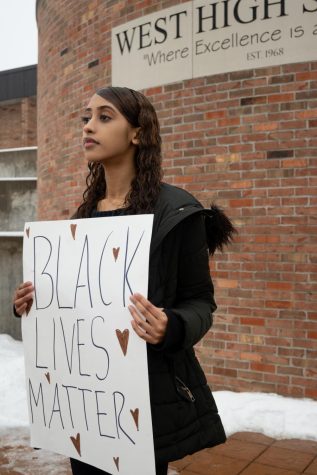
During the weekend of Nov. 7 and 8, a video of a white West High student using a racial slur went viral on social media among West High students. On Nov. 9, West High Principal Mitch Gross and members of administration held a meeting for students of color to air their concerns about the nature of the video. After the meeting, a protest began in the halls of West with Nisreen Elgaali ’22 and other students leading the way to change.
The First Protest
[After the meeting], I really didn’t know if students were going to come together to do something like [protest] or not, especially with the pandemic, a lot of us have been struggling socially. I know it could have been a really hard environment for a lot of students to be in. It’s scary, too. I was just really happy that the whole day happened, that we came together.
I made sure before we started walking around, I stood up and talked to everybody. I said, ‘This has to be peaceful. We have to be in unison and we have to be loud. We don’t want anything violent. If somebody is planning on doing something violent, do it on your own. It should have nothing to do with the protests.’
As the protest was going around the school, I was feeling very confident in a sense that this is the first time the Black students from my past four years here have unified together about this problem. It’s something that we’ve all been upset about for a long time, but we haven’t really come together to figure it out. [When we were protesting during lunch] there were a lot of students who walked by and there were a lot of students who laughed at what was going on. But that didn’t bother me, I just looked at them and I thought, ‘What’s funny?’
That made me feel… I know it might not make sense, but seeing those students and their true colors when they walked by when they were laughing at it or looking at it those types of ways, it made me feel hopeful. I was thinking, ‘People’s true colors are showing now. And now, as much as [people want] to sweep things under the rug, they can’t.’ In a sense, that gave me some hope.
(Later), other students started getting into conflicts and fights (unrelated to the protest). That’s something that really upset me. The first couple of fights started happening, and me and a lot of other students said, ‘We don’t want y’all to fight but if you’re gonna fight, fight outside of school, don’t fight in the environment that the school gave us for our protest and for our message, because then it’s going to deteriorate the message,’ which is exactly what happened.
That was the first point throughout this whole journey where I felt like it wasn’t working out my way. It was kind of like a letdown. Then the cops were called, and that was a mess because cops didn’t need to be involved.
For the students that were supporting everything, I was amazed. I loved the unity. Besides that, I was mainly disgusted, honestly. For instance, when we were protesting in the cafeteria, one of the students who was protesting with us — she’s a Black student — was standing on the table protesting. This white student who was sitting at the table asked her to give him a lap dance, which was very inappropriate and degrading. A lot of situations like that have been happening, which is one of the main things that disgusted me, but the thing that really baffled me were the rumors that started. Anonymous accounts on Discord started rumors saying that we were planning violent protests.
The Day After
Wednesday, I came to school, and the administrators told me that somebody called the police and left an anonymous tip that there was supposed to be a violent protest with knives and firearms on Friday. That was not correct at all. That was the most overwhelming and stressful part for me. That whole time I was feeling very upset, but it just sparked more in me to keep fighting. It was like, ‘You guys really made me angry, now I’m gonna go ten times harder.’
At school Thursday, one of the administrators called me into the office. They asked me, ‘Can you put out a statement on your social media saying that there will be no protest tomorrow?’ (due to the anonymous tip). I didn’t want to make a statement in the first place, because it’s not my job, it’s the school’s job. I don’t know why they were asking me to do something that big. I was having a really hard time debating, ‘Maybe I do need to put the statement out for the safety of other students.’ [Administrators told me] about the ELL (English Language Learners) students, a lot of them were worried, because they fled from countries that had violence in them. The protests sparked some PTSD in [some ELL students] because they didn’t want the same thing to happen again. Some of those students are Sudanese and I’m Sudanese. At that point, the situation was, do I put this statement out and make the Sudanese kids feel safer? Or do I hold back and further the progress of the Black student movement? Long story short, I ended up choosing not to make a statement. That was a really overwhelming day. For two hours, I was sitting in the office debating my choices.
After the protest Monday, [and in reaction to rumors of violent protests], we had peaceful protests (throughout the school day) with signs that students taped to their backpacks. [When I planned this silent protest, I was thinking] I’m going to spread the message to everybody and there’s nothing they can do about it. There’s so many different things that people try to dilute this movement with, and not just the school movement, but Black Lives Matter (BLM) in general. They tried to dilute it with violence and that really pisses me off. That was the main thing going through my head was, ‘You guys cannot call us violent today.’
A lot of people think that this movement is directed towards certain people, [thinking] it’s against Mr. Gross or against (Superintendent Matt) Degner. We’re not targeting specific people. There are (other) specific people who gotta go, because they have been constantly racist. I think that if everybody just does their part and does their job, things will be fine.
Nisreen’s Personal Story
I feel like most of the microaggressions and racism that I’ve personally endured was in elementary school and in junior high. That was when I moved (to the U.S.) from the Middle East. I moved from Dubai. I went to a British private school down there. I learned English and Arabic at the same time my whole life, but I didn’t know the slang here. (When moving here), people would just say stuff that didn’t make sense to me. I had an accent, I used to speak British-English because I was raised with it, so I had a British accent.
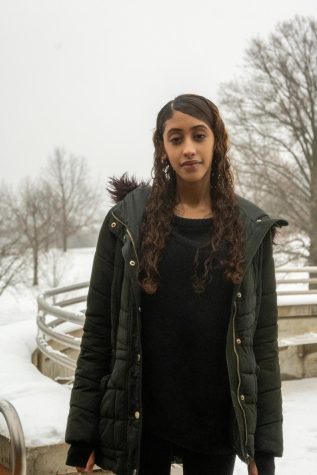
When I spoke Arabic, I spoke very formal Arabic. [There were] a lot of microaggressions because of that, in my elementary schools specifically. When I would speak to the rest of the Sudanese kids, a lot of the white kids around me would be like, ‘Why does she like talking to them?’ Because I was ‘so proper.’ They were always looking at me very weirdly because of that. Now, I’m told a lot, ‘Oh, you’re one of the good ones.’ Saying ‘You’re one of the good ones,’ isn’t a compliment. Saying ‘You’re the prettiest Black girl I’ve seen,’ isn’t a compliment. None of that is.
I think that’s what most frequently happens in this school specifically, more so microaggressions than blatant racism. I think a lot of blatant racism still happens. A lot more than you’d expect, a lot more so since this movement started. People have talked to me and told me about certain situations and I’m like, ‘Oh my God, I didn’t even know that stuff was happening.’ I just knew the micro aggressive things were happening. So once I heard those situations, I was like, ‘it’s even worse than I thought.’
Your donation will support the student journalists of West High School. Your contribution will allow us to purchase Scholarship Yearbooks, newsroom equipment and cover our annual website hosting costs.
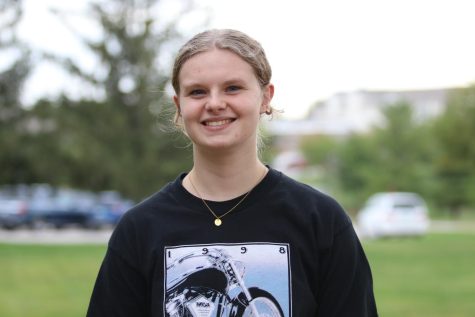
(she/her) Laney Prelle is a senior at West High and this is her fourth year on staff. She is the online profiles editor and her hobbies outside of writing...
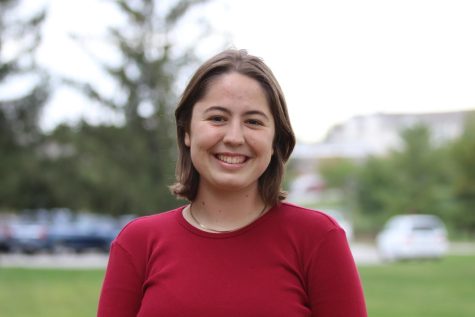
(she/her) Audrey is a senior and has been on the West Side Story staff for 3 years. She is the Copy Editor for the WSS website this year. For fun, she...
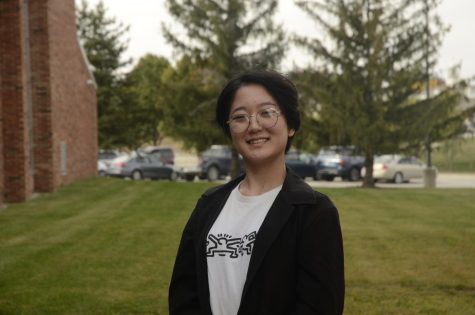
(she/they) Sachiko is a senior at West, and this will be their 3rd year on staff. She is a design editor and photographer for the print publication. In...


